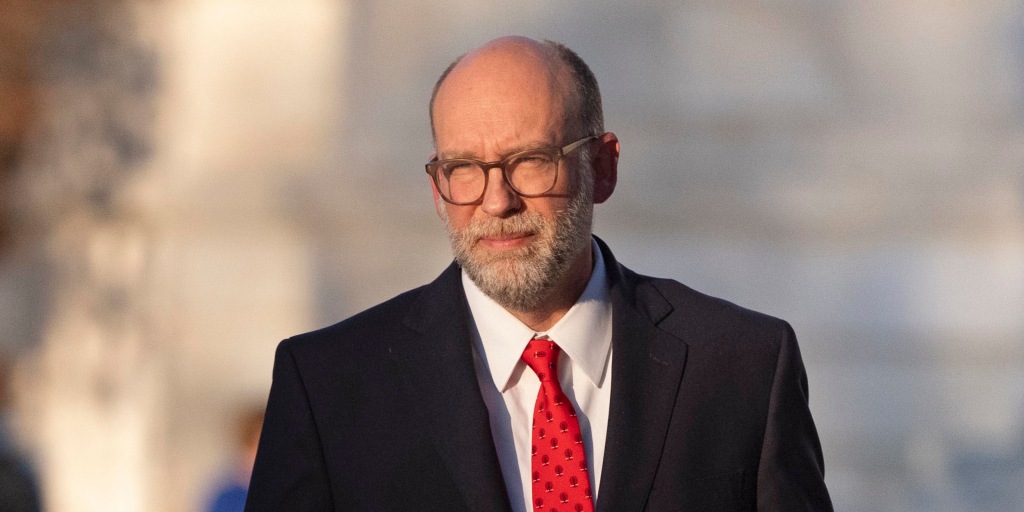Trump Proposes Largest Tax Cuts for Middle-Class Americans

White House press secretary Karoline Leavitt announced Thursday that President Donald Trump aims for the "largest tax cuts in history" targeted at middle-class Americans.
Leavitt's remarks came as Trump engaged with congressional leaders at the White House to discuss a budget reconciliation bill expected to encompass various tax reforms.
During his first term, Congress passed the 2017 Tax Cuts and Jobs Act using the budget reconciliation process.
Trump has expressed his desire for these tax cuts, most of which are set to expire next year, to be made permanent.
The Wall Street Journal indicated that some congressional Republicans are considering a five-year extension to manage costs associated with the Congressional Budget Office's evaluation, which spans a ten-year period.
A reporter inquired if Trump would accept a bill including only a five-year extension. Leavitt did not provide a direct response but mentioned that the president holds several tax priorities for Congress to incorporate into the legislation.
"No tax on tips, which is a clearly articulated campaign promise by the president," Leavitt stated. "No tax on seniors' Social Security. No tax on overtime pay. Renewing President Trump's 2017 middle-class tax cuts."
Leavitt also highlighted the need to adjust the SALT cap, eliminate special tax breaks for billionaire sports team owners, close the carried interest tax deduction loophole, and introduce tax cuts for products made in America.
"This will be the largest tax cut in history for middle-class, working Americans," Leavitt asserted. "The president is committed to collaborating with Congress to make this happen."
The first three items regarding tips, Social Security payments, and overtime pay are self-explanatory.
A key feature of the 2017 tax cuts was the near doubling of the standard deduction from $6,500 for single filers and $9,500 for married filers to $12,400 and $24,800 respectively, meaning earnings up to those thresholds are exempt from federal income tax.
Furthermore, the legislation increased the child tax credit from $1,000 to $2,000 per child, with up to $1,400 of the credit being refundable.
The SALT cap, referenced by Leavitt, limits the state and local tax deductions available to taxpayers who itemize their deductions instead of claiming the standard deduction.
The Tax Cuts and Jobs Act imposed a $10,000 cap on the deduction of state and local taxes, significantly impacting taxpayers in high-tax states like California, New York, and New Jersey.
Republican congressional representatives from these states are likely to advocate for a higher cap in exchange for their votes, as reported by Roll Call, with Leavitt confirming Trump's support.
Additionally, the carried interest deduction allows investment managers to enjoy a lower capital gains tax rate on their compensation income. This issue has implications since capital gains are subject to a 23.8% tax, while regular wage income can be taxed at double that rate, according to Yahoo Finance.
Bloomberg noted that Leavitt's comments marked the first public acknowledgment by the Trump administration concerning either the closure of the carried interest deduction or the termination of special tax benefits for sports team owners.
Lastly, Leavitt mentioned tax cuts for American-made products in reference to a campaign proposal from Trump made during a speech to the Economic Club of New York in September.
The plan suggests a reduction in the corporate tax rate from 21% to 15% exclusively for companies manufacturing their products in the U.S., with Trump arguing this would stimulate domestic manufacturing and job creation.
A report published in 2023 by economists from prestigious institutions concluded that Trump's corporate tax reforms effectively stimulated economic growth.
The Wall Street Journal's James Freeman summarized a report from the National Bureau of Economic Research indicating that the 2017 Tax Cuts and Jobs Act led to a significant rise in business investment, benefiting the economy greatly.
The permanent reduction of the corporate tax rate from 35% to 21% has resulted in increased corporate tax revenues, surging from approximately $230 billion in 2017 to $445 billion in 2023.
According to The Hill, House Speaker Mike Johnson stated the meeting between Trump and GOP lawmakers was productive, with expectations for the House Budget Committee to begin working on a budget resolution as early as next week.




















